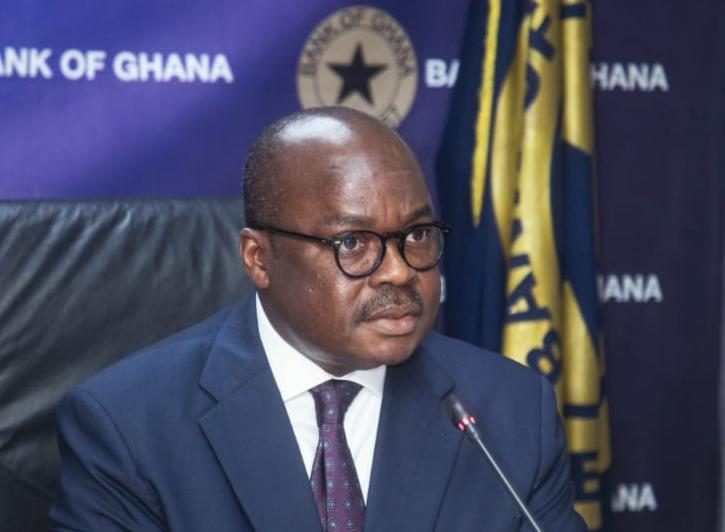The Bank of Ghana on Monday announced its decision to maintain the benchmark policy rate at 29 percent for the second consecutive time.
Bank of Ghana Governor Ernest Addison announced this at a press briefing after 117th meeting of the Monetary Policy Committee (MPC) of the central bank to assess the economy.
Addison said the MPC decided stay the rate at this level due to the need to maintain a strong monetary policy stance to deal with pressures observed in the inflation outlook.
“After decelerating sharply in 2023, the pace of disinflation has slowed in the first two months of the year,” the governor stated.
Although inflation rose slightly in January 2024 and edged down in February, the latest inflation forecast suggests an elevated profile from the possible upward revision in transport fares, an adjustment in utility tariffs, higher ex-pump fuel prices, and some pass-through effects of exchange rate depreciation, added Addison.
In addition, he said the MPC decided to increase the cash reserve ratio (CRR) on domestic currency deposits for commercial banks at multiple levels to help curb inflation pressures.
“Banks with a loan-to-deposit ratio above 55 percent must meet a CRR of 15 percent. Banks with ratios between 40 percent and 55 percent and those below 40 percent will meet CRR levels of 20 percent and 25 percent, respectively,” Addison announced.
He added that the bank had hoped to see commercial banks lend to the private sector as the macroeconomic situation improved, “but many banks are not doing so, and lending to the private sector is very weak.”
Instead of lending to the private sector, most commercial banks rather invested their resources into the government of Ghana Treasury Bills or central bank bills. Now, these measures will change the incentives for the banks to reverse the trend and mop up their excess liquidity.
So, with the new measures, you would have to put more of your resources into cash reserves at the central bank. In effect, we will lock it up for you, said Addison.
The West African cocoa, gold, and crude oil exporter has been facing crippling economic difficulties in recent years, with record-high inflation, widening budget deficits, ballooning public debt, and rapid currency depreciation.
The government introduced economic reforms last May, backed by a 3.0-billion-dollar loan from the International Monetary Fund, hoping to revamp the economy.

